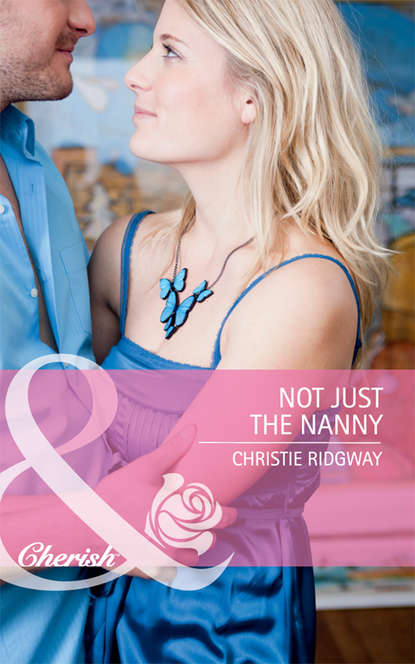
Полная версия
Doctor, Soldier, Daddy
Kendry wished her Irish heritage didn’t make it so easy for her pale skin to blush. She hated being put in her place, but even more, she hated being so firmly reminded she was an hourly-wage orderly in front of Dr. MacDowell.
“I’ll walk with you, Miss Harrison,” Dr. MacDowell said. “I want to hear what you have to say.”
Miss Harrison. He addressed everyone in the hospital by their proper names and titles. Still, she couldn’t help but appreciate the respect he showed her. He wanted to hear what she had to say. He always did. He was the kind of doctor who would patiently listen to family members who anxiously brought someone to the E.R. He would listen...
Her gaze returned to Myrna, who was lying as she’d been for the past hour. She hadn’t responded to Paula or Dr. MacDowell’s appearance by her crib.
Dr. MacDowell would listen.
“Could you look at this patient for me? Her name is Myrna Quinones, she’s nine months old, and she’s due to be discharged today. She had surgery three days ago, and I’m wondering if she might have an infection or something. She’s grown increasingly listless today, and I haven’t been able to interest her in taking more than a couple of ounces from her bottle, but she’s been off IV fluids since this morning. Maybe she’s dehydrated?”
“Kendry, please.” Paula sounded shocked. “You don’t bother physicians with cases that aren’t theirs. Dr. MacDowell, I assure you, the nurses on the floor have been checking on Myrna every hour. I’ve requested an update myself, and she isn’t running a fever or showing any signs of infection.”
“Thank you, Mrs. Cook.”
Kendry bit her lower lip. Dr. MacDowell had said thank you in that dismissive tone doctors seemed to master, the one that said when I want your opinion, I’ll ask for it. Kendry saw Paula call for the floor nurse with a press of a button. Once the nurses realized a doctor was checking the patient, they’d show up. Doctors were at the opposite end of the food chain from orderlies.
“Could you hold Sammy for me, please?” Dr. MacDowell asked.
Kendry held out her arms for the little boy, who dove right into them. Dr. MacDowell took his stethoscope out of his pocket and slung it around his neck. As he walked the few steps to the hand sanitizer station, he asked Kendry questions briskly, impersonally. Normal fluid intake? Number of wet diapers today? Normal activity level?
Then he was bending over the crib, opening Myrna’s hospital gown, listening to her chest, running strong hands over the baby’s limbs, feeling for pulse points. Thank you, Kendry wanted to say. Thank you, thank you, thank you.
The baby seemed fine, if unnaturally calm. The doctor didn’t seem to be finding anything out of the ordinary. Kendry started to feel absurd.
“Is it possible to have an infection without running a fever?” she asked.
“No,” Paula answered.
“Yes,” Dr. MacDowell said. “Which procedure did this child have?”
Kendry waited a beat for Paula to answer, but Paula obviously didn’t know and gestured toward Kendry with one hand.
“It was a kidney repair of some kind. I believe they opened a blocked tube, but whether it was going into the kidney or leading out, I’m not sure.”
Dr. MacDowell opened the baby’s diaper and palpated her pelvis and bladder. “Did you recently change her diaper?”
“It’s been hours. I keep checking, but it’s dry.”
“Her bladder’s distended. Mrs. Cook, I want this patient transported to the E.R. Get Dr. Gregory on the phone for me.”
“Yes, Doctor.”
Dr. MacDowell gently flipped the baby over and removed her incision bandages. Some unhealthy pus oozed from the tiny incision site. Kendry had never been so sorry to be proved so right.
Dr. MacDowell did not look happy. At all.
“I’m sorry,” Kendry said. “I’m an orderly. I’m not allowed to remove a patient’s bandage.”
“No, but the nurses are,” he said, and she didn’t think she was imagining the quiet anger in his voice. “They should have, given your report.”
For the first time in her memory, Kendry was suddenly glad she wasn’t a nurse. No doubt Paula felt the same as she handed the phone to Dr. MacDowell. “Dr. Gregory on the line for you.”
Kendry busied herself by packing up Sam’s diaper bag with one hand as she held him on her hip with the other. Then she quieted another fussy baby, feeling soothed herself as she listened to Dr. MacDowell updating Dr. Gregory on the patient he was sending his way. One of her fellow orderlies arrived to wheel Myrna downstairs to the E.R.
Paula hissed in Kendry’s ear as the crib was being rolled away. “Get off the clock before you get in trouble for going over.”
“Here, hold Sammy then.”
But Sammy wouldn’t go to Paula. He clung to Kendry’s neck as fiercely as any nine-month-old could, which was pretty darned hard.
Paula tried, anyway, pitching her voice to a falsetto coo. “Come on, Sam, let Miss Paula hold you.” She started prying Sammy’s small fingers off Kendry’s neck, which only served to make the child more desperate to cling to the adult of his choice.
Dr. MacDowell hung up the house phone and came over to intercede. “Hey, buddy, come see Daddy.”
Sam was in full-pitch tantrum mode now. He wanted to cling to Kendry’s neck, and by God, that’s what he was gonna do.
“He usually comes to me,” Dr. MacDowell said, frowning.
Kendry patted the baby’s back and fought her urge to back away from Paula and Dr. MacDowell. She interjected a deliberate note of cheerfulness into her voice. “That’s okay—it’s okay. Shh, Sammy.” She gave Paula’s arm a pat to get her to stop clawing at the child’s fingers, then started bouncing Sammy gently. “Just let him catch his breath. He’ll be fine. He needs a second to decide what to do next.”
Paula dropped her hand.
Dr. MacDowell spread his large hand over his son’s back and stayed that way. “Okay, buddy,” he said to Sammy. “Okay.”
“I think he picked up on the tension. He knew I was worried about Myrna. Thank you again for taking a look at her.”
“That was a good catch on your part. You were going to tell me something about Sam’s bottles?”
From the corner of her eye, Kendry saw Paula turn away and start the closing routine for the playroom, although it would be a couple of hours before she’d bring the last children back to their regular beds for the night.
“It takes Sam a lot longer to finish a bottle than the other kids.”
“It does?” His hand stilled on Sammy’s back.
Kendry nodded. “I don’t think he’s just a slow eater. I think he has a hard time swallowing. I tried feeding him almost sitting up today, and he got that bottle down so much faster. You might want to try it yourself and see if that works for you.”
“I will. Thanks.” The man was really frowning now. Kendry could tell he was mentally recalling feeding sessions with his son, reviewing them for anomalies.
Such a doctor.
“I had no idea he was slower than the other kids,” he said, sounding less like a doctor, more like an apologetic, perhaps a little bit defensive, father.
“I guess if you’d never fed another baby, you wouldn’t.” Kendry smiled at him, not wanting him to feel badly about himself. Sammy helped her out by choosing that moment to decide to turn his face toward his father. The steady, adult conversation had given Sam the chance to calm down enough to realize that he did, indeed, want Daddy.
“Da-da,” he said, and twisted his whole little body away from Kendry to grab his father’s lapel.
Dr. MacDowell easily took the child’s weight from Kendry. “Hey, son. Let’s go home. Can you say ‘bye-bye’ to Miss Harrison?”
But as Dr. MacDowell shifted a step back from Kendry, Sammy reached his hand out for her. “Me,” he said. His little fist opened and closed, stretched out toward her. “Me.”
“Bye-bye, Sammy. I’ll see you again real soon.” Kendry wished she could drop a kiss on his soft hair, but she wasn’t supposed to kiss the children. It was against hospital policy, for health-related reasons. Besides, she’d end up with her face way too close to the doctor’s face. She imagined the sensation of brushing cheeks with him—
That was best saved for another time.
No, that was best saved for never. It would never be a good time to imagine the feel of Dr. MacDowell’s skin.
It would be warm.
Stop it.
Kendry settled for a smile, then bent to pick up her bag. When she straightened, Dr. MacDowell hadn’t left, but looked like he was waiting on her. For a second, for one insane second, Kendry thought that the handsome man with that adorable child was waiting to spend more time with her.
“Can I walk you to your car?” he asked.
Kendry wanted to melt on the spot. He was such a gentleman. Too bad she didn’t have a car for him to walk her to.
No, she was Kendry Ann Harrison, minimum-wage-earning hourly employee, the girl who rode the city bus because she’d once been too stupid to go to college when she’d had the chance. She didn’t belong with the guy who’d devoted a decade of his life to learning all the medical know-how that allowed him to save people’s lives.
“Thanks, but I have to go clock out. Have a good night.”
She slung her tote bag over her shoulder and headed out of the room with what she hoped was a cheerful, unembarrassed, jaunty attitude.
“Me,” Sammy said, drawing out the syllable in a high-pitched voice of distress.
Kendry almost stopped. She knew that when Sammy wanted something, he said “me” instead of “mine.” But since she was Kendry, and his father was Dr. MacDowell...well, she wasn’t his mother, and he wasn’t her baby.
Still, she turned to blow her favorite baby a kiss over her shoulder.
* * *
The juggling routine never varied.
Jamie thought he ought to be getting better at it by now, but he still felt like a caricature of a single parent, the kind on TV commercials who dropped briefcases and seemed incapable of balancing babies and bottles. If only there were a solution at the end of thirty seconds of failure, like on TV. If only Jamie could press a door-opening button on the key to a certain car, or spot some golden arches that would magically make his day easier.
The juggling only got worse in real life. This evening, it was raining, but Jamie couldn’t pull his car into the garage, which was still full of boxes from his deployment. He dashed with Sam from the driveway to the side door, but the door refused to open. The days of uncharacteristic rain had made the wood swell, so Jamie ended up kicking open the door while Sam cried and the rain pelted them both.
“I know, Sam, I know. We’ll get you out of these wet clothes ASAP. They get cold real quick when they’re wet, don’t they?” Jamie kept his monologue running as he tried to keep the arm that was holding Sam inside the house while reaching out into the rain with his other arm to retrieve both his briefcase and the fallen diaper bag. “I can fix the clothes thing, son. Give me a second to shove this door closed, and I can fix that one problem. Thank God.”
Sam didn’t seem convinced, judging by the misery on his face and the volume of his cries.
Jamie applied some force to get the door to shut. In the still of the house, he could hear the rain dripping from the bottom of the diaper bag. The denim was soaked. One more thing he’d need to fix before his next shift at the hospital. Unpack the diaper bag, throw it in the dryer, repack it before work.
Damn. He let his head drop back to rest on the wall, let the denim drop onto the wood floor, which was wet, anyway.
His daily life wasn’t difficult, really, just a constant to-do list of tasks. So why did he feel so overwhelmed by it all sometimes?
Maybe his brother was right. Maybe having a nanny waiting for him now would be the solution. A grandmotherly woman, ready to put the diaper bag in the dryer for him. A gray-haired lady who would have had the lights on in the house while she waited for him to come home. One of the nanny services he’d consulted had specified light cooking as an option in their contract. There could be supper waiting for him now, made by a sweet old lady.
Even when he was dripping wet and tired, Jamie didn’t like the image. He didn’t want a grandmotherly person in his house, someone to accommodate, someone to adjust to.
He wanted a partner, a peer, someone who would love Sam like her own, day after day, year after year, with no salary and no vacations. A mother for Sam, not for himself. Was it too much to ask?
Sam wailed.
“Right. It’s just you and me, kid. Dry clothes, coming right up.”
Chapter Three
Jamie struggled with his guilt while his son struggled with his bottle.
When all the little things went wrong, one after another, when Jamie’s workday had been long and his baby refused to be comforted, memories of Amina brought him no comfort. On days like those—on days like today—instead of missing Amina, instead of wishing she were here to share the safe life of suburban America, Jamie would feel angry.
Amina could have shared this life. Amina could have seen their son growing day by day, but she’d chosen a different route, a path in life that had led to her death. She’d left Jamie alone to pick up the pieces, to protect her baby, to keep her memory alive for their son. And sometimes, damn it all to hell, Jamie was pissed off at the choices she’d made.
Being pissed off at a dead woman was unacceptable. The guilt was heavy on him now. It felt familiar.
He and Sam were dry, at least, both wearing white T-shirts and sitting together in the leather recliner. Jamie hadn’t been able to find a rocking chair that fit his size comfortably, and the recliner did the trick when it came to relaxing with the baby until Sam—or both of them—fell asleep.
Tonight, though, as Sam worked his way through swallowing and spitting up the contents of his bedtime bottle, relaxation seemed a long way off. Sometimes Jamie thought he’d never relax again—not for the next eighteen years, anyway. Not while he was the sole adult responsible for making sure Sam had all he needed for a good life.
Usually, these quiet moments with his son made everything fall into place. The troubles of his workday receded, unable to keep his attention when he held this baby and felt all the wonderment of a new life.
Usually, but not tonight.
As Sam grunted and sucked his way through the bottle, Jamie studied his son’s face. Sam looked like Amina. His arrestingly dark eyes were undoubtedly his mother’s. Jamie smoothed a hand over the soft, black hair on Sam’s head—also Amina’s. He let Sam curl his hand around Jamie’s index finger. Those fingers didn’t look like Jamie’s. Nor his toes. Did they look like Amina’s?
Jamie no longer remembered details like that, the shape of her thumb or pinky finger. He was forgetting. If he forgot Amina, there would be nobody to tell Sam about his mother. Amina had been the last of her family, the sole survivor when the rest had been wiped out by the war. For resisting the Taliban, her family name had been erased to the last distant cousin. Amina had only been spared by a matter of days, she’d told him, sent to school in London before the slaughter in her village had taken place.
Jamie wondered how the MacDowells would have reacted if the local sheriff suddenly had the power to walk onto their ranch and start shooting. His family probably would have been as defiant as Amina’s family had been. Perhaps that was one reason he and Amina had hit it off so quickly. They were kindred spirits. She could have been a MacDowell.
She should have been a MacDowell.
Instead, even while she was pregnant with Jamie’s child, she’d chosen to stay in a country where prenatal care was nonexistent. Hell, indoor plumbing was still a sign of personal wealth. Against Jamie’s medical advice and personal plea, she’d obstinately traveled with a documentary film crew. In a remote village, she’d gone into premature labor while on her crusade to persuade Afghanis to let their daughters attend school. She’d died not from a Taliban bullet like the rest of her family, but from a lack of medical care, like too many women in her country.
Tonight, Jamie was angry at a woman who’d lost her entire family years before she, herself, had died.
More guilt.
Sam worked greedily at his bottle.
No, Amina’s family weren’t all dead. Sam was here, and Jamie would do everything to ensure one member of that brave family had a life that didn’t end in tragedy.
Jamie bent his head as he lifted Sam’s tiny hand and planted a kiss on the perfectly formed fingers. If they weren’t his fingers and they weren’t Amina’s fingers, whose were they? A bit of DNA passed on from a great-grandparent? Or did those fingers, perhaps, come from another man, a man who had come into Amina’s life before Jamie?
More guilt for even thinking such a thought.
Jamie had too much time to think about things in the safety of his quiet ranch house. Afghanistan had been intense—life outside the wire more so. Emotions ran high, bonds were formed quickly, and Amina, his unit’s translator and general ambassador to the local population, had literally slipped into his bed after they’d worked together for only two short weeks.
At the time, he hadn’t been surprised. They’d had chemistry and a connection from their first meeting. For the first two weeks, they’d spent nearly every moment together, seeking out the smallest villages and encampments, offering medical care to the local population. Amina’s intelligence and her determination to better her fellow countrymen had made an impact on Jamie, if not on the villagers.
He hadn’t been surprised that Amina was sexually experienced, either, because she’d lived in London longer than she’d lived with her family in Afghanistan. Her appearance was Afghani, but her personality was Western. He’d fallen for her and she for him. When, in the dark hours before dawn, she’d silently come into the hut he used as both clinic and bedroom, he’d had no doubts as she’d slipped into his bed.
Now, however, thousands of miles away and a year and a half later, he wondered. Had she already been pregnant? Had she wanted Jamie to believe he was the father, so that her son would have an American protector?
Sam gurgled down a few swallows of formula and patted Jamie’s hand with his own. Jamie clutched the baby closer to his chest.
If Amina had wanted an American soldier to protect her coming baby, she’d gotten one. Jamie would never let Sam go, whether they shared DNA or not. The feel of this child in his hands was essential to his life. It had been from the moment a local midwife who’d trekked miles on foot stood outside the barbed wire and handed him a dehydrated newborn and the news that Amina was dead. Dead and already buried, in accordance with their laws.
And so Jamie had sworn on a legal document that Sam was his biological child. He’d gotten the required signatures of others in his military unit, fellow soldiers and civilian contractors who could vouch that they’d seen Jamie working with Amina the eight months before the birth of the child, an appropriate period of time that could make it possible for Jamie to be the father. If any of those witnesses had wondered how an infant born at only eight months of gestation had appeared to be full-term, they’d kept that to themselves as they’d scrambled to help Jamie find formula and bottles—a futile search.
IVs had kept Sam alive those first critical days. Jamie had still had a week left on his tour of duty, but he’d literally wheeled Sam’s stretcher onto the next medical flight to Germany. No one had questioned him. Jamie had gambled that forgiveness would be easier to gain than permission, and that gamble had paid off.
So far.
But in the quiet of nights like tonight, as Jamie looked at the son who looked nothing like him, fear crept into his chest. What if the State Department got around to that paperwork and a diligent clerk decided to order medical tests to prove the baby biologically belonged to the soldier?
The blood-type test would be ordered first. If the blood types were incompatible, then the soldier could not be the father of the child. If the blood types were compatible, it only proved that it was possible for the soldier to be the father, but the paternity was still in question.
Jamie knew his blood type. He knew Sam’s. It was possible that he was Sam’s father. But it was not a fact, not without further DNA testing, and if the State Department chose to order those tests...
He willed the fear away. Jamie sat Sam up to pat his back, hoping that air bubbles would come up but formula would stay down. It was a struggle at every feeding. The nurse at the hospital playroom had said that Sammy had more problems with the bottle than other babies in her care. That nurse seemed particularly bright, the one with the ponytail and glasses.
No—the young woman was not a nurse. She was an orderly. Jamie had noticed her before, when she’d worked in the emergency room. The orderly was certainly working in the right field; she had a natural talent for noticing patients’ needs. She’d been working in the pediatric playroom more and more often, something Jamie had been glad to see. Sammy was in good hands when that particular woman was on duty.
“Come on, Sammy, give me a burp to make any college frat boy proud.”
Instead, Sammy vomited a substantial amount of formula over the blanket that Jamie had laid over his lap. The formula wasn’t curdled, not even partially digested. What went down came right back up, every feeding.
Sammy had been born with a birth defect, a hole in the wall of his heart. It would be repaired soon, and Sam would grow up never knowing it had been there. That particular birth defect shouldn’t cause feeding issues. Jamie had assumed all this spitting up was normal, but now the orderly—Miss Harrison was her name—had said Sam needed to sit up to drink his bottle.
As he soothed Sam by rubbing his back, Jamie’s medical training kicked in automatically. Consider the options. Eliminate them one by one.
What conditions caused a baby to need to be fed upright? Cleft palate? Jamie tapped his index finger to Sam’s perfect, bow-shaped lips. Obviously, Sammy didn’t have a cleft palate.
Jamie tried to feed Sam a few more ounces of formula, this time sitting him far more upright. It did make a difference. He could feel Sam’s body relaxing as the ounces went down with less struggle. Was this how most babies fed, then? Settling in, relaxing, not fighting to get each swallow?
This time, when Jamie burped Sam, he slipped his finger in his son’s mouth and felt the palate. The roof of the baby’s mouth was there, intact. Of course, this had been checked early in Sam’s life, part of the routine exam American doctors gave all newborns. Jamie had flashed his penlight down his son’s throat more than once. The roof of his son’s mouth was fine, intact on visual inspection. This time, Jamie pressed a little harder, moved a little more slowly, working his way toward the throat, millimeter by millimeter.
Sam objected, but Jamie concentrated as he would with any patient. He kept palpating despite Sam’s whines and wiggles—and then he felt the roof of the mouth give. The palate wasn’t formed correctly toward the back of the throat. It looked normal because the membrane covering the roof of the mouth had grown over it, but there was a definite cleft, hidden.
Miss Harrison had noticed a symptom that Sam’s pediatricians and Jamie himself had missed. Sam had a cleft palate. A very slight, easily overlooked, but definitely malformed palate. One that hindered his swallowing.
Guilt.
If any parent should have figured that out, he should have. He was an M.D., but this was his first child, the first baby he’d ever given a bottle to, and it hadn’t occurred to him that the amount of formula that came back up was greater than normal.
Like the doctor he was, his brain kept working despite the guilt. After the diagnosis, treatment options needed to be reviewed. As medical problems went, this one was simple. Sammy would have to go under the knife one more time, but it was fixable.












